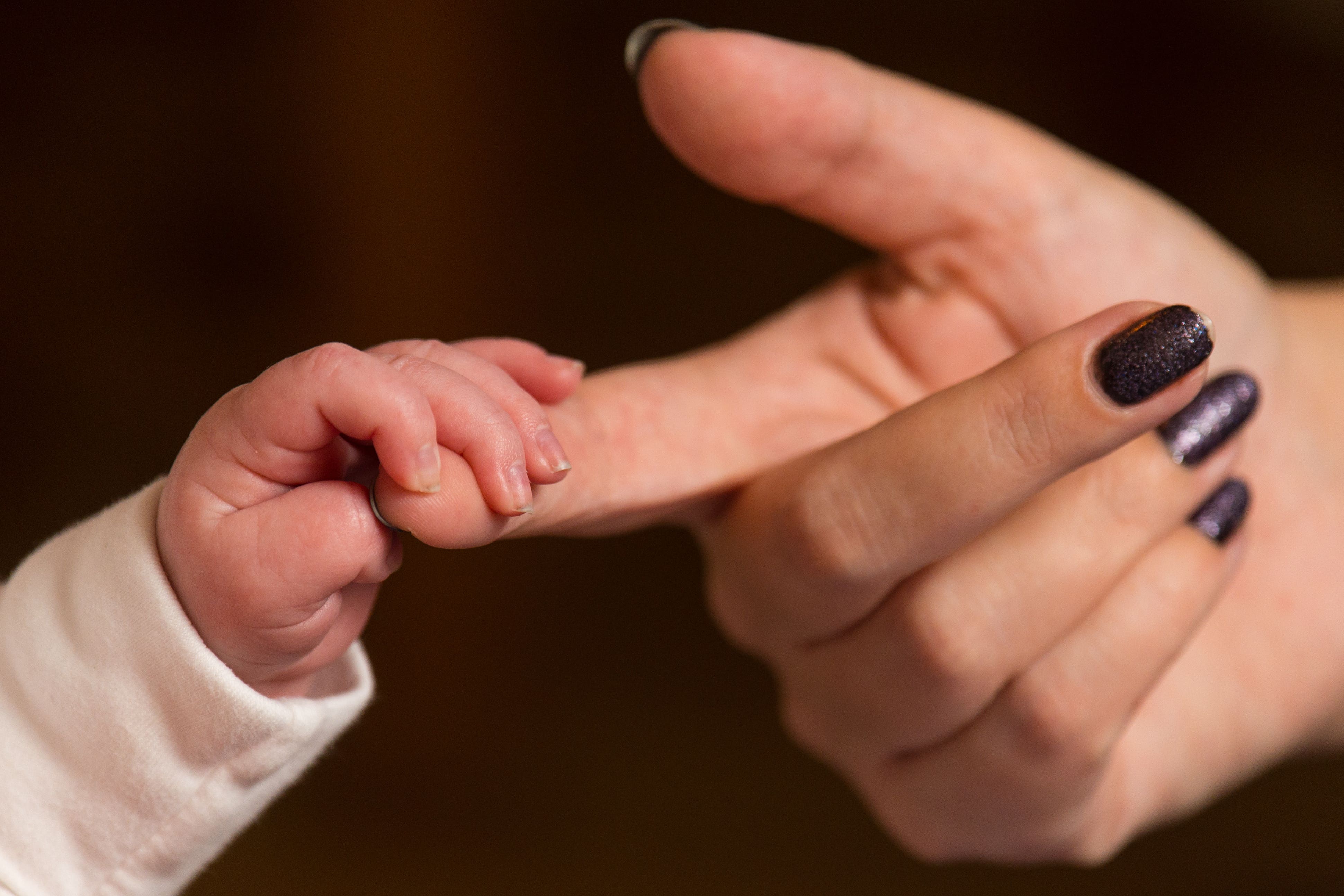More births outside marriage or civil partnership for first time
The percentage of births registered to cohabiting parents has also increased compared with a decade earlier

Births registered outside marriage and civil partnerships in England and Wales have outnumbered those registered within them for the first time.
The percentage of births registered to cohabiting parents has also increased compared with a decade earlier, while mothers aged 30 years or over were almost twice as likely to be in a marriage or civil partnership compared with those in their twenties or younger.
The latest figures from the Office for National Statistics (ONS), for 2021, show 624,828 live births in the two nations. Of these, 320,713 (51.3 per cent) were registered to women who were neither married nor in a civil partnership.
The average age of mothers giving birth rose to 30.9 years in 2021, up from 30.7 the previous year, the ONS said. The average age of fathers stayed at 33.7 years.
The ONS said that 2021 is the first year in which the number of live births registered outside marriage or a civil partnership has exceeded the number registered within them since records began in 1845.
It follows a long-term trend seen in recent decades of declining marriage rates and increasing numbers of cohabiting couples, the ONS added.
The statistics body said that, as the full impact of the pandemic on marriage and civil partnership statistics is not yet known, caution should be applied when interpreting its latest figures.
Harry Benson, research director of Marriage Foundation, said the rise was “almost certainly a knock-on effect of the ban and restrictions on marriage during lockdown in the previous year”.
He said “many” couples had had to delay their weddings during the pandemic, and that he expected “to see some sort of rebound in births within marriage” in future.
Some 36.5 per cent of all births were registered to parents living together, compared with 31.2 per cent in 2011.
In 2021, new mothers aged 30 years and over were almost twice as likely to be married or in a civil partnership (60.5 per cent) than those under 30 (31.2 per cent).
Stillbirths were most common in women aged 40 and over, with a rate of 5.9 per 1,000 births, the ONS said. This cohort was followed by women aged under 20, at 5.0 stillbirths per 1,000 births.
A stillbirth refers to a baby born after 24 weeks that did not breathe or show signs of life, the ONS said. The highest stillbirth rate was among babies from the Black ethnic group, at 6.9 per 1,000 births.
Stillbirths remained more common in the most deprived areas, the ONS said, adding that the rate has been consistently higher since 2015 for mothers living in these areas.
The stillbirth rate in the most deprived 10 per cent of areas in England was 5.6 stillbirths per 1,000 births, compared with 2.7 per 1,000 births in the least deprived 10 per cent of areas.
The most frequently recorded date of birth in 2021 was September 23, while the least frequent was December 26.
The Sands national helpline provides support for anyone affected by the death of a baby. You can call 0808 164 3332 from 10am to 3pm Monday to Friday and 6pm to 9pm Tuesday, Wednesday and Thursday evenings, or email helpline@sands.org.uk
Bookmark popover
Removed from bookmarks